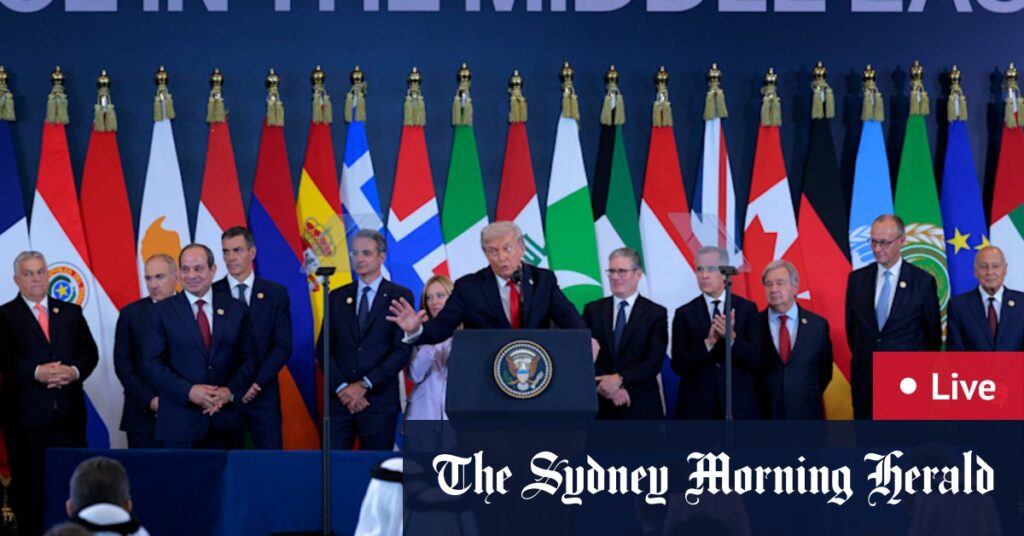
In a series of escalating developments, the fragile ceasefire in Gaza is showing signs of strain. This morning, reports emerged that Hamas fighters executed a group of men in Gaza City, further complicating the already tenuous peace agreement. Meanwhile, Israel has accused Hamas of violating the ceasefire by not returning the remains of all dead hostages.
Amidst this backdrop of international tension, controversial comments from Australian politician Pauline Hanson have sparked a domestic debate. Speaking on Melbourne’s 3AW radio, Hanson called for Palestinian visa holders in Australia to be sent back to their home country, citing national security concerns.
Hanson’s Controversial Remarks
Pauline Hanson, leader of the One Nation party, argued that with a peace agreement in place, there is “no reason” for Palestinian visa holders to remain in Australia. She expressed “grave concerns” about the presence of Palestinians, claiming that a significant portion of the population in Gaza supports Hamas, which she labels a terrorist organization.
Hanson’s comments extended to those in Australia on tourist visas, asserting that they should not be allowed to stay. She highlighted domestic issues such as housing shortages and homelessness as reasons for her stance, stating, “We don’t know who these people are that we brought into the country, and therefore, you know, the war is over there, so I think they should be sent back.”
Ceasefire Under Threat
The situation in Gaza remains precarious. The ceasefire, brokered after extensive negotiations, was seen as a critical step towards stabilizing the region. However, the recent actions by Hamas and the subsequent accusations from Israel have cast doubt on the durability of the agreement.
According to sources, the failure to return the remains of hostages is a significant breach of the terms agreed upon. This development follows a pattern of intermittent violence and broken truces that have characterized the conflict over the years.
Historical Context and Expert Opinions
The ongoing conflict between Israel and Hamas has a long and complex history. Ceasefires have often been fragile, with underlying tensions and unresolved issues leading to their collapse. Experts suggest that without addressing the root causes of the conflict, such as territorial disputes and humanitarian concerns, lasting peace remains elusive.
“The ceasefire is merely a band-aid on a much deeper wound,” said Dr. Sarah Thompson, a Middle East analyst. “Both sides need to engage in meaningful dialogue and make concessions to achieve a sustainable resolution.”
Domestic Reactions and Implications
Hanson’s remarks have been met with mixed reactions within Australia. Some support her stance, citing security concerns and the need to prioritize domestic issues. Others criticize her comments as inflammatory and lacking empathy for those affected by the conflict.
The Australian government has yet to respond officially to Hanson’s statements. However, immigration policies and international relations remain sensitive topics, particularly in light of global geopolitical tensions.
Looking Ahead
As the situation in Gaza continues to evolve, the international community watches closely. The potential collapse of the ceasefire could have significant implications, not just for the region, but for global peace efforts.
Meanwhile, in Australia, the debate over immigration and national security is likely to persist, with Hanson’s comments adding fuel to an already contentious issue.
The coming weeks will be critical in determining the future of the ceasefire and the broader geopolitical landscape. Both regional and international stakeholders will need to navigate a complex web of diplomacy, security concerns, and humanitarian needs to find a path forward.







